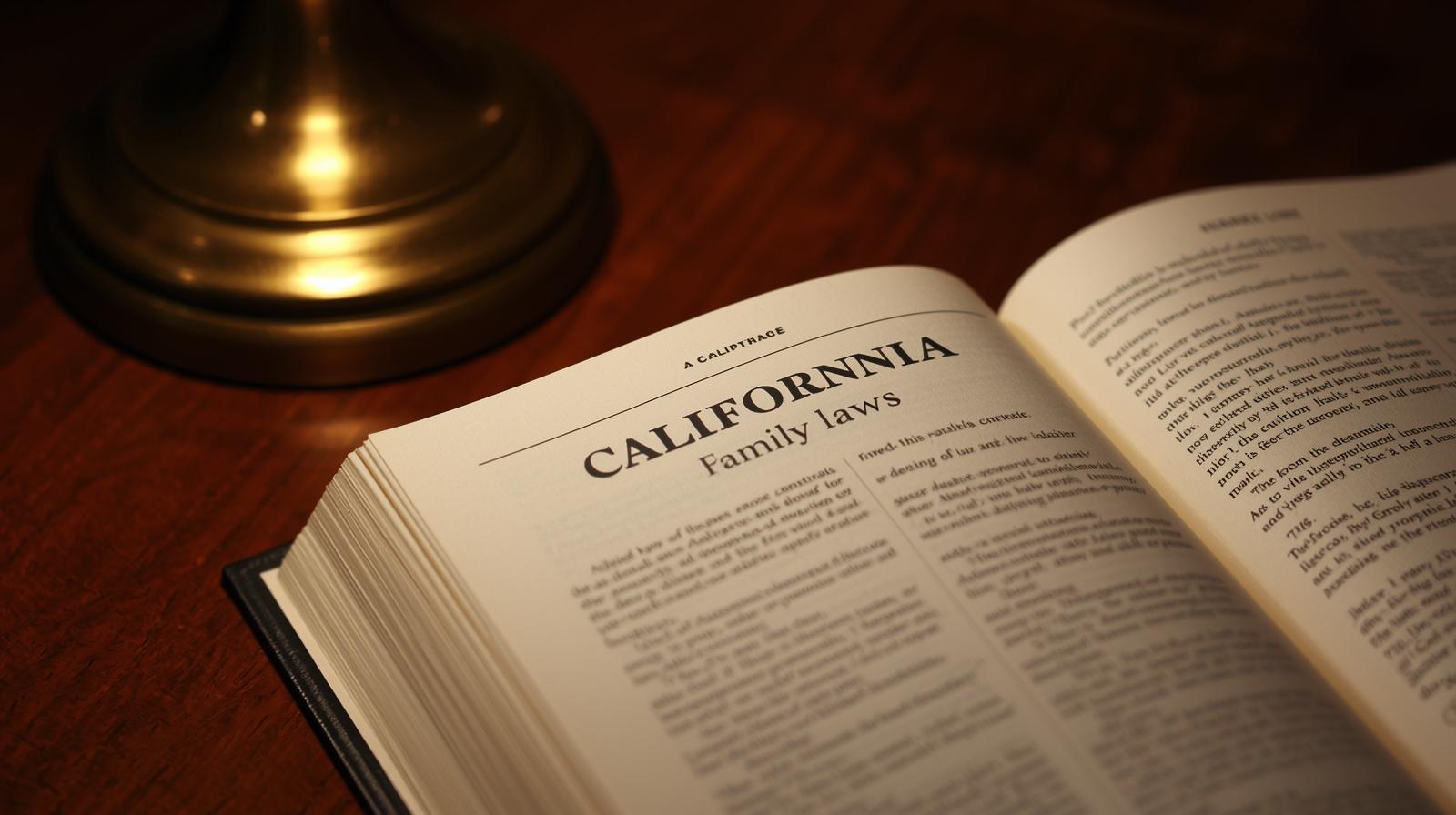
For individuals and couples who want to build a family, Assisted Reproduction Technology (ART) has opened doors that were unimaginable just a generation ago. California is one of the most advanced and supportive states in the country when it comes to fertility treatments, donor agreements, surrogacy, and parentage laws. Whether you are a heterosexual couple facing infertility, an LGBTQ+ couple planning a family, or a single parent by choice, ART provides multiple pathways to parenthood.
This blog provides a practical overview of the ART options available in California — including who they are for, why families choose them, and the legal considerations you must understand before moving forward.
What Is Assisted Reproductive Technology (ART)?
ART refers to any medical procedure where eggs, sperm, or embryos are handled outside the body. It includes:
- Artificial insemination (IUI)
- In vitro fertilization (IVF)
- Egg donation
- Sperm donation
- Embryo donation
- Gestational surrogacy
ART can be used alone or in combination, depending on the family’s medical, biological, or personal needs.
California is a national (and global) leader in ART because:
- Its clinics are highly specialized
- Its laws protect intended parents
- It offers legal clarity for donor agreements and surrogacy
- Courts routinely issue pre-birth parentage orders
This makes California a preferred destination for those seeking fertility care.
Level 1: Low-Intervention Options
These methods are often the first step in fertility treatment, relying on a functioning uterus and ovaries, and they are typically the least invasive and most cost-effective.
1. Timed Intercourse (TI) & Ovulation Induction (OI)
| Option | What is it? | Who is it for? | Why choose it? |
| Timed Intercourse (TI) | Using ultrasound and hormone monitoring to pinpoint ovulation, advising the couple to have intercourse on the most fertile days. | Heterosexual couples with unexplained or mild infertility, or those with infrequent ovulation. | Cost-effective and non-invasive. It optimizes conception chances by removing the guesswork, often before advancing to more complex treatments. |
| Ovulation Induction (OI) | Using oral medications (like Clomid or Letrozole) or injectable hormones to stimulate the ovaries to produce one or more mature eggs. | Women with irregular or absent ovulation (e.g., due to PCOS), and those with unexplained infertility. | Addresses a known problem (ovulatory dysfunction) with medication. Can be combined with TI or IUI. |
2. Intrauterine Insemination (IUI)
| Option | What is it? | Who is it for? | Why choose it? |
| Intrauterine Insemination (IUI) | Washed and concentrated sperm (from a partner or a donor) is placed directly into the uterus via a catheter during the precise window of ovulation. | Heterosexual Couples: Mild male factor infertility, cervical mucus issues, or unexplained infertility. Same-Sex Couples/Single Parents: Those using donor sperm (the most common path for lesbian and single parents). | It’s a relatively simple, in-office procedure that gives sperm a significant head-start, bypassing potential barriers in the cervix. It is less expensive and invasive than IVF. |
Level 2: High-Intervention Options (In Vitro Fertilization)
In Vitro Fertilization (IVF) is the most well-known and effective form of ART. It involves retrieving eggs and sperm and performing fertilization in a laboratory.
1. Conventional In Vitro Fertilization (IVF)
| Option | What is it? | Who is it for? | Why choose it? |
| Standard IVF | Eggs are retrieved after hormone stimulation, mixed with sperm in a dish, and allowed to fertilize naturally. The resulting embryo is then transferred to the uterus. | Heterosexual Couples: Severe male or female infertility (e.g., blocked fallopian tubes, severe endometriosis, low ovarian reserve), and multiple failed IUI cycles. | Highest success rates per cycle compared to IUI. Allows for the creation and freezing of multiple embryos for future use (family planning). |
| Intracytoplasmic Sperm Injection (ICSI) | A single, healthy sperm is injected directly into the center of a single egg. | Couples with severe male factor infertility (very low sperm count, poor motility, or poor morphology), or when using previously frozen eggs. | Guarantees fertilization when sperm is limited or unable to penetrate the egg on its own, maximizing the chance of creating a viable embryo. |
| Reciprocal IVF | One partner provides the egg (genetic material) for fertilization, and the resulting embryo is transferred into the other partner (gestational carrier). | Lesbian or Trans-Male Couples where both partners wish to share a biological role. | Deepens the emotional connection by allowing one partner to be the genetic parent and the other to carry the pregnancy. |
2. Fertility Preservation (Egg & Embryo Freezing)
| Option | What is it? | Who is it for? | Why choose it? |
| Egg Freezing (Oocyte Cryopreservation) | Eggs are retrieved and frozen for later use. | Individuals delaying parenthood (social freezing), or those facing medical treatments (like chemotherapy) that could harm fertility (Oncofertility). | Preserves fertility at a younger age when egg quality is optimal, offering a proactive “insurance policy” against age-related decline. |
| Embryo Freezing | Fertilized embryos are frozen for later use. | Couples who undergo IVF and have viable embryos remaining after their fresh transfer. | Future family building. These frozen embryos (FET—Frozen Embryo Transfer) are often used for a second or third child without having to repeat the full IVF cycle. |
Level 3: Third-Party Reproduction
When a person or couple lacks the necessary gametes (egg or sperm) or the ability to carry a pregnancy, California’s progressive laws facilitate the use of third-party options.
1. Donor Services (Gamete Donation)
| Option | What is it? | Who is it for? | Why choose it? |
| Donor Sperm | Sperm from an anonymous or known donor is used for IUI or IVF. | Single women, lesbian couples, or heterosexual couples with severe male factor infertility. | Provides the essential gamete when the intended male partner cannot provide sperm, allowing the female partner to carry the pregnancy. |
| Donor Egg | Eggs from an anonymous or known donor are fertilized and transferred. | Women with low ovarian reserve (e.g., advanced maternal age or premature ovarian failure) or genetic conditions they do not wish to pass on. | High success rates. Using eggs from a younger, screened donor dramatically increases the probability of a successful pregnancy. |
| Donor Embryo | An embryo created by one couple (who no longer needs it) is transferred to a recipient couple. | Couples where neither partner can provide viable gametes, who wish to experience pregnancy but prefer embryo adoption over using separate egg/sperm donors. | Cost-effective alternative to using both donor egg and donor sperm, often offering a faster path to transfer. |
2. Gestational Surrogacy
| Option | What is it? | Who is it for? | Why choose it? |
| Gestational Surrogacy | An embryo (created from intended parents’ or donors’ gametes) is transferred into a Gestational Carrier (GC), who has no genetic link to the child. | Individuals or couples who cannot safely carry a pregnancy (e.g., uterine factor infertility, history of recurring loss, specific health risks) or male same-sex couples and single men. | California is surrogacy-friendly, providing clear legal frameworks (pre-birth orders) that establish the intended parents as the sole legal parents from birth, providing maximum legal security. |
Which ART Option Is Right for You? A Practical Breakdown
For LGBTQ+ Couples
- Lesbian couples: IUI, IVF, reciprocal IVF
- Gay male couples: egg donation + surrogacy
- Transgender individuals: fertility preservation, IUI, IVF, surrogacy depending on anatomy and transition stage
For Single Parents by Choice
- Single mothers: IUI, donor sperm, embryo donation
- Single fathers: gestational surrogacy + egg donation
For Infertility Cases
- Medical infertility: IUI, IVF, egg/sperm/embryo donation
- Genetic disease concerns: IVF with PGT
- Recurrent miscarriage: IVF and surrogacy solutions
The Legal Cornerstone: Intent in California
What makes California a particularly secure place for all forms of ART is its strong legal emphasis on intent. Under California law, for arrangements involving donors, written contracts and agreements are paramount.
- Family Code $\S$ 7613: This statute, and related case law, is designed to ensure that donors (sperm, egg) are not the legal parents and that the intended parents are the legal parents. For same-sex or unmarried couples, this legal clarity is essential to securing parental rights and preventing future custody challenges.
The state offers one of the most advanced and supportive ART environments in the world — medically and legally. But assisted reproduction involves more than medical decisions. Legal planning is essential to ensure parental rights are secure, donors have waived rights, and surrogacy arrangements are enforceable.
Minella Law Group Can Help
If you’re considering ART in California, contact Minella Law Group for a confidential consultation. We will help you understand your options and secure your parental rights, we guide families through:
- Donor agreements
- Surrogacy contracts
- Parentage judgments
- Embryo disposition planning
Every family deserves clarity and legal protection — before conception, during pregnancy, and after birth.
📞 Call Minella Law Group today at 619-289-7948 to schedule a confidential consultation with one of our family law specialists. We’ll listen to your concerns, assess the situation, and create a clear strategy tailored to your goals.
📝 Prefer email? Fill out our online contact form and a member of our legal team will get in touch with you promptly.
*Disclaimer: This article is for informational purposes only and does not constitute legal advice. For personalized guidance on your case, contact a licensed California family law attorney


